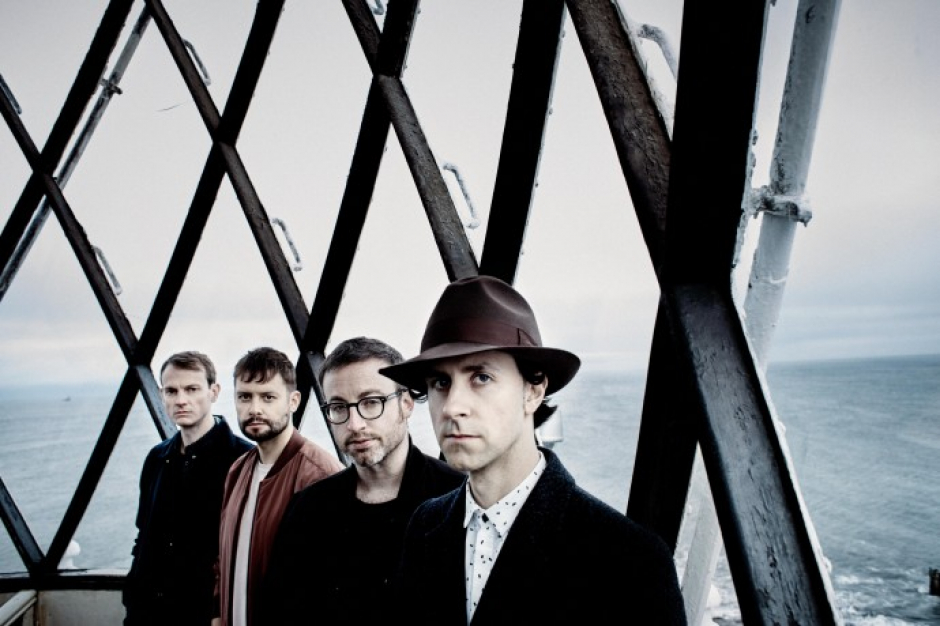We are giddy and overdressed. Our drinks lifted above our heads, we follow each other into gaps to find our place in the crowd. ‘It’s a sold-out show, you know,’ we say to each other. We do know, but it has to be said. It’s the requisite observation at gigs, meaning a rare second place for weather. Those of us who have been here since the doors opened have already danced, our backs damp, our curls beginning to drop, our eyelines staked. We let latecomers through, hope they keep moving and settle somewhere else: we don’t want to miss anything. When we stop, we look around sheepishly in case of shortness, but we don’t move: we don’t want to miss anything either.
We take turns peeling off our layers until we are down to short sleeves and skin, foreheads already shining. It’s still light outside, where contrails dissect the sky, but inside, we long for the neon signs of night. A sticky floor, plastic cups scrunching underfoot. We smile into our phones, at each other, hold cold drinks against our cheeks. We watch men in dark clothes run stooped across the stage until there is only one, and then he signals with a torch and then we know. We hear the hush and the cheer and we know.
And then we are all staring in the same direction and shouting, or gripping our drinks between our teeth to clap. The opening song of the night is the new album opener, mid-tempo, political in a way that some of us enjoy, that others feel is the Brexit equivalent of “isn’t it cold today?”. But no matter: we all sing the chorus. We even sing in the right accent, which is not from here – we can’t remember where it’s from and will forget, later, to check Wikipedia – but is northern, and therefore better, that much we can agree on.
Some of us have done this before: in Liverpool, years ago, feeling underdressed and pale in comparison, not yet knowing how clichéd an observation that was to make. Or earlier still, at a festival, in the rain, holding a chip butty called the Growler (which was named after Pauline Fowler), and crying. Not knowing who Pauline Fowler was, grateful to the rain for hiding the tears. For those of us, the dancing, the outfit, the energy, it’s exactly what we’d hoped for. For the rest, the kicks and leaps and sharp suit are a surprise, and as the tempo picks up and the set list moves on to something older, we watch each other swell with excitement and memory and beer. We smile at each other, friends now, because hearts-for-eyes is a transitive relation and love is measured in sweat and spilled beer. While the music is playing, this is all true.
Above us, behind us, everyone is on their feet, and above them, heat, light, stained and flashing. A topless man in the stalls swings his shirt around his head. A man in a blue polo shirt leans back to sing. Another, in white, clasps his hands over his chest and then lifts his palms to the ceiling. Right now, we feel each and every fragment. A middle-aged couple, he in a pink shirt with a contrast collar, she in a cold-shoulder top, sway like serious teenagers. Between us, we know all the words to every song, and we shout along to the lyrics, remembering the other times we’ve done just the same thing in living rooms and bars across the country. But we’re also here, eyes shining now too, taking photos and videos of the biggest hits, as if to prove something, pressing our foreheads together and singing into each other’s faces, as if to check that it’s real: you feel this, too, right? I’m not alone with these thoughts? We are younger than we knew, older than we thought. Prone, at this stage of the evening, to grandiosity. Some of us are even crying.
Our cheers summon the band back onto the stage, at least, that’s what it feels like. “It’s because of you that we keep making music, because you support us.” We clap. “Thank you, Manchester.” We woop louder than we have all night. We know this will be said in every city on the tour, that it’s not really about Manchester, but no matter. Gigs make us sentimental. A lot of things do – reality TV, President Obama, Britain’s imperial past – but gigs especially. We know Manchester is an ordinary city, but when we’re in the dark, surrounded by sound and people with whom we have at least one meaningful thing in common, it doesn’t feel ordinary. Rather, we don’t feel ordinary. Or alone. That’s what the best gigs do. That’s what this gig does.
And when we step out into the night, trails of flyers in every direction, and it’s you and me again, him and her, it’s them, for a while our ears ring the same. Maybe that’s something. Small, but something.

